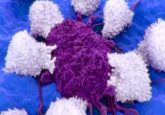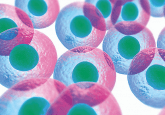Hair loss gene could be exploited to improve cancer immunotherapy

A novel mouse study has demonstrated that the gene IKZF1, which is associated with the hair loss condition alopecia areata, could be exploited to improve cancer immunotherapy. The findings were recently published in Cell Systems.
“While immunotherapies have shown great promise in cancer, most patients do not benefit from these treatments because their tumors are able to evade the immune system,” explained study leader Angela Christiano from Columbia University (NY, USA).
“But one way around this obstacle is to harness genes that cause the recruitment of T cells in autoimmune disease, and use them to attract T cells to kill tumors. In this study, we showed that a gene that recruits T cells in alopecia areata – a condition in which immune cells attack and destroy hair cells – is turned off in various types of cancer, protecting them from the immune system. But if we turn that gene back on, we can make those cancers vulnerable to the immune response,” Christiano added.
Utilizing an algorithm, the researchers screened genomic and bioinformatic data of thousands of cancer patients in the Cancer Genome Atlas, searching for tumor types that had IKZF1 in their regulatory networks.
The algorithm predicted several types of cancer, including melanoma,that would be amenable to targeted immunotherapy and two types that would not.
First the predictions were tested in a mouse model of melanoma whereby the tumors were genetically modified to express IKZF1; these mice were found to have increased levels of infiltrating immune cells in their tumors compared with control mice with conventional melanoma, a sign that the tumors had lost as least some ability to evade the immune response.
Overall, the investigators found that overexpression of the master regulator IKZF1 led to enhanced immune infiltrate recruitment and tumor sensitivity to PD1 and CTLA4 inhibitors in several tumors that normally lack IKZF1 expression.
“We were particularly struck that IKZF1-expressing tumors responded significantly better to anti-PD-1 and anti-CTLA-4 treatment. Tumor growth was almost completely suppressed,” stated study co-author Charles Drake (Columbia University).
Next, the team analyzed data from a previous study of melanoma patients with disabled IKZF1. Patients with disabled IKZF1 had higher recurrence rates and worse survival compared with other melanoma patients.
The team is currently searching for additional candidate genes that can similarly be used to enhance the response to immunotherapy in melanoma.
Additionally, the algorithm predicted that prostate cancer could be made more responsive to immunotherapy – the investigators demonstrated that restoring IKZF1 activity in prostate tumor cells made them susceptible to immunotherapies.
“Clinically, this is an especially exciting finding, since prostate cancer is generally very poorly infiltrated by immune cells. Turning these ‘cold’ tumors ‘hot’ could be a key to therapeutic success,” commented Drake.
Furthermore, the algorithm correctly predicted that colorectal and kidney tumors would not respond to immunotherapy if IKZF1 expression was increased, since the gene was found to be inactive in these tumors.
The authors caution that therapies based on these findings would be years away, predominately because different approaches would be needed to activate IKZF1 in humans. However, the approach could be used soon to predict whether patients are likely to respond to immunotherapy and to assess their prognosis.
Sources: Chen JC, Perez-Lorenzo R, Saenger YM et al. IKZF1 enhances immune infiltrate recruitment in solid tumors and susceptibility to immunotherapy doi:https://doi.org/10.1016/j.cels.2018.05.020 (2018)(Epub ahead of print); www.eurekalert.org/pub_releases/2018-07/cuim-hhl073018.php





